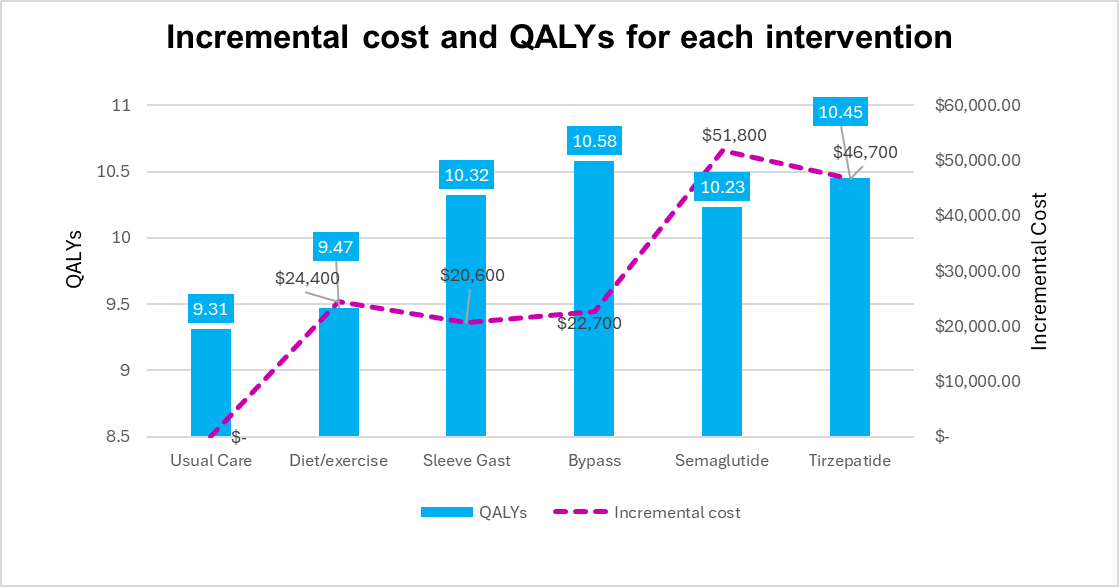Bariatric surgery is (a bit) more cost-effective than GLP-1s for knee arthritis
September 25, 2025
Source: Betensky, et al Annals of Internal Medicine, September 16, 2025
Researchers in Annals of Internal Medicine published an analysis of the cost effectiveness of bariatric surgery (both sleeve gastrectomy and traditional bypass, also called Roux en Y) and semaglutide (Wegovy, Ozempic) and tirzepatide (Zepbound, Mounjaro) in treating knee arthritis. Knee arthritis is much more common in those with obesity, and weight loss improves symptoms even without changing the anatomy of the cartilage and bone of the knee. The researchers used published data on the effectiveness of the medications and surgery (versus diet and exercise), and estimated how many quality-adjusted life years (QALYs) would be gained through each treatment. Lower pain scores would lead to additional quality-adjusted life years.
They found that the most QALYs were gained through the two surgical procedures, sleeve gastrectomy and Roux en Y bypass. As a result, these only cost $20-23K per QALY, Tirzepatide led to more weight loss and thus more QALYs and lower cost per QALY than semaglutide, but was still less cost-effective than the surgical procedures.
This finding was very sensitive to drug cost. Modest decreases in the costs of the GLP-1 medications could make their incremental cost-effectiveness similar to that of bariatric surgery. The researchers considered decreased diabetes and major adverse cardiovascular events in their analysis.
Implications for employers:
At current costs, GLP-1 medications are similar in cost-effectiveness to many other medical services that are covered, but they are less cost-effective than bariatric surgery.
Decline in unit cost of tirzepatide or semaglutide could make these drugs attractive economically to treat severe osteoarthritis.

